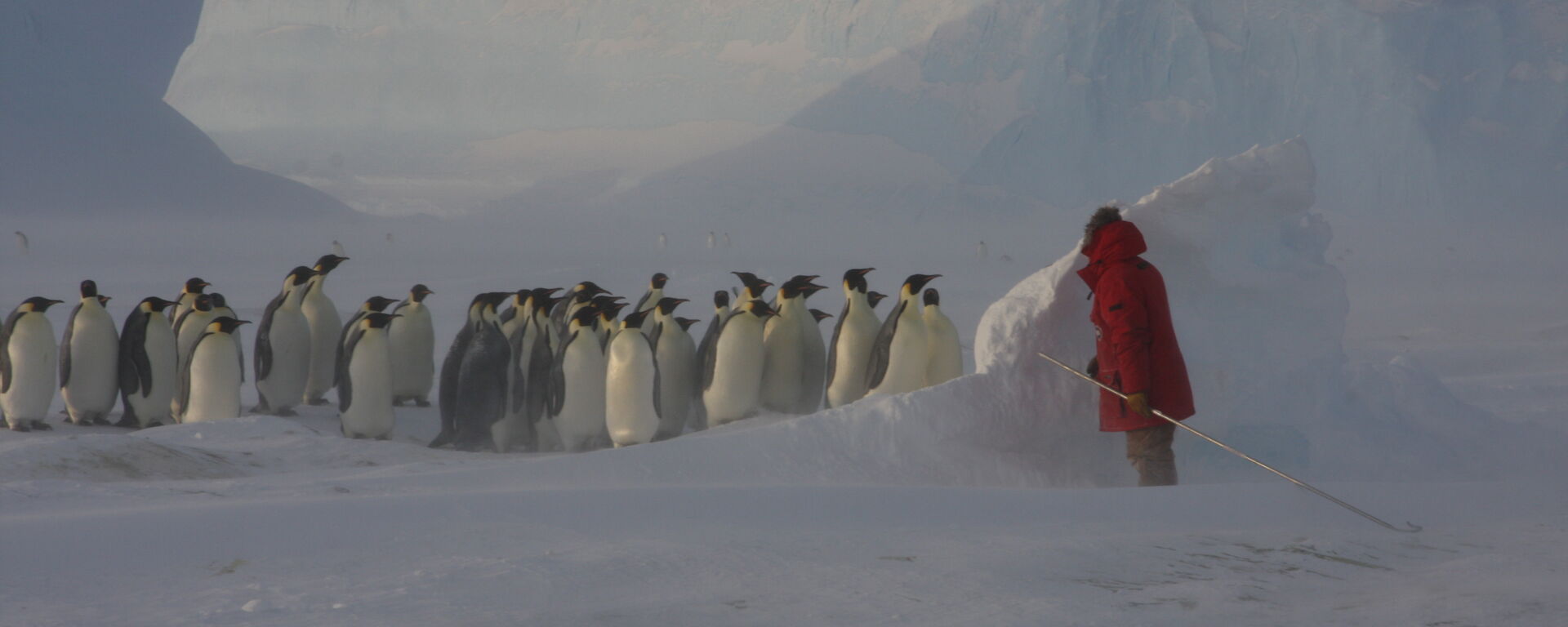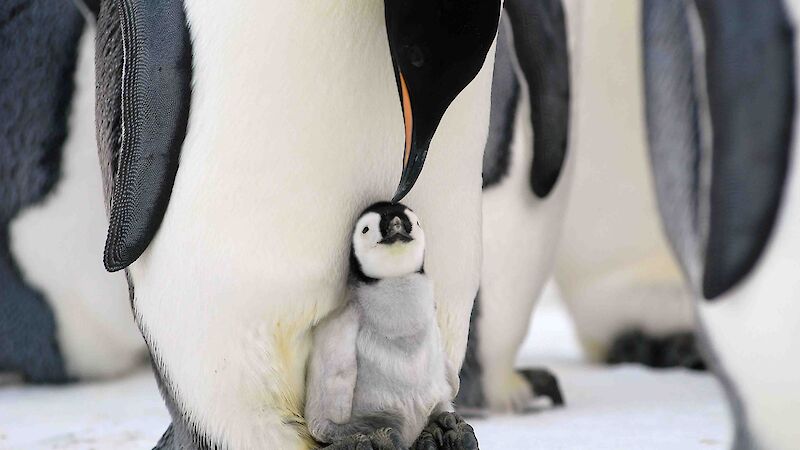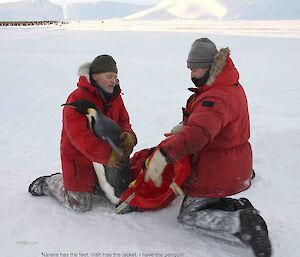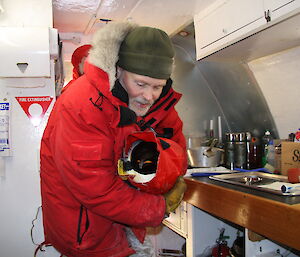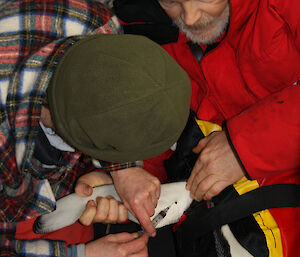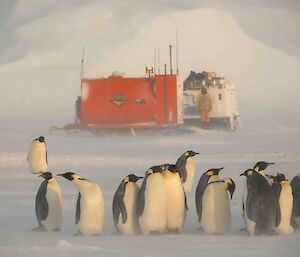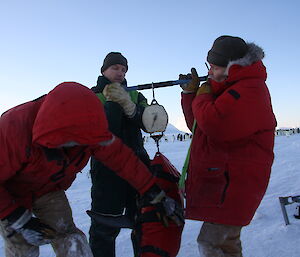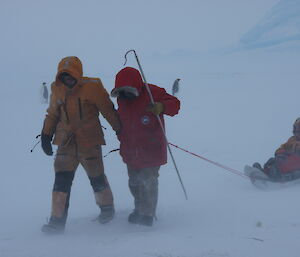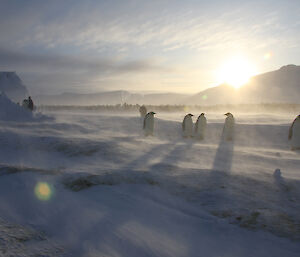3 September 2008
That is a question biologist Gary Miller and his assistant, Robyn Mundy are investigating at Mawson this year as they undertake research with the most regal members of the penguin family, emperor penguins.
Studies carried out in December 1995 at Auster Rookery revealed that many emperor penguin chicks carried antibodies to infectious bursal disease (IBD), a pathogen that causes millions of dollars in damage to commercial poultry farmers worldwide each year.
Studied within the context of introduced species, Gary is hoping to discover how the emperor penguins come into contact with this virus. At the time of sampling in the original study, the chicks had had no contact with the outside world.
The two scientists are testing adults and later their chicks four times throughout the year to try to determine the source of the virus itself.
To date, only the antibodies to IBD have been discovered. They will also test for bird flu and Newcastle’s disease, other killer diseases which have the potential to wipe out local penguin populations, the rationale for the AAD policy of no poultry products in the field.
The first sampling of 100 birds took place in May, when both parents were fat and happy, ready to mate and lay their eggs. Gary and Robyn revisited the colony two months later when the males were in poorer condition, having been fasting for two to four months while they carefully protected the eggs from the winter cold. While they did the incubating, their mates were feasting out at sea.
Every effort is being made to minimise disturbance, including no contact with any birds still carrying eggs or chicks on their feet.
With this in mind, the third round of sampling will occur in late September when the chicks themselves will be tested. Now at least five weeks old, they will be more independent of their parents and they congregate in juvenile crèches. They are growing so fast, both parents need to go to sea to collect food for them.
At that stage they will only have had contact with their parents and the local environment. The final batch of samples will occur in December just before the near-mature chicks head out into the wider world for the first time. By then the chicks may have been in contact with Adélie penguins or scavenging skuas and giant petrels. The adults will be sampled again as well.
Because of the nature of the samples and the testing, all of the laboratory work will be done back in Western Australia. The results will not be known until sometime next year.
Meanwhile, the sampling has been very successful with the first two sessions completed. The chicks have mostly hatched now and Gary and Robyn visit the colony each week to keep track of their progress. Everyone on station is looking forward to sampling the chicks in another month. The days are already much longer and the sunlight is a welcome relief that gives everyone energy.
Safety and environmental concerns have been taken into consideration at every stage of the program. Very little outside field work is normally undertaken in winter due to the cold conditions. To guard against risks of exposure, a newly restored RMIT van is located close to the colony to serve as a daytime work hut, together with a polar pyramid tent as emergency shelter. Nearby Macey hut will be the regular night time base.
Handling these large birds may pose some safety risks, as they weigh 22–35kg, so manual handling skills are mandatory. Although they are reasonably docile creatures, the scientists and their assistants will need to handle them in such a way as to minimise injury from pecking and flipper blows.
All on station over the winter will have the opportunity to assist Gary and Robyn, and all will be provided with necessary training in how to handle the birds to minimise their distress and reduce risk of injury to their human handlers.
All waste will be treated according to the AAD Station and Field Waste Management Guide. Grey water and urine containers will be returned to station, together with solid human waste bagged for incineration. All who visit the site will ensure that they bring no excess packaging, and of course, poultry products will not feature in the diet!

